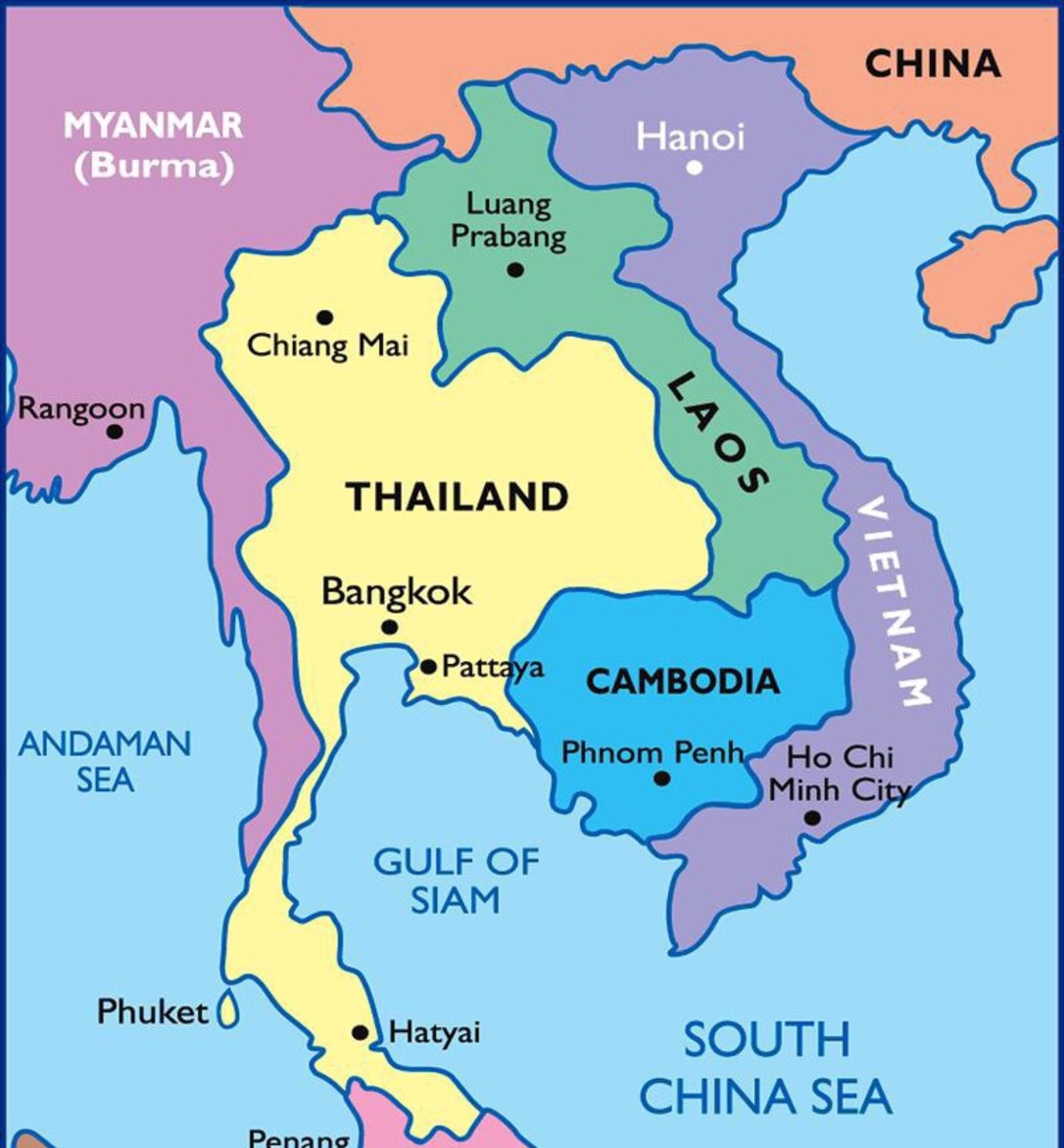Why I Wrote "The Ghosts of Hanoi"


In 1966, having unceremoniously flunked out of the University of Rhode Island the year before, my draft status was 1A, meaning eligible to be drafted. Meaning the US Army. Probably meaning Vietnam. So I figured I’d beat the system - I joined! And I joined the US Army. And I went to Vietnam. Smart thinking! Anyway, at least I got the field I had joined for, which was military intelligence which proved to be quite interesting. The year in Nam was rather uneventful (thank God) and I returned home in late 1967. My last year in the Army was served in Italy - much better then Nam, I don’t have to tell you.
In 1970, I enrolled in Rhode Island College to finish my education, graduated in 1973, and the following year I took a job at one of the ubiquitous military intelligence agencies in the Pentagon. In 1979, having been in several analytical positions in the agency, I was assigned to the office that was investigating the several thousand military and civilian personnel still missing in Southeast Asia. It was during this assignment that I got the idea for the novel, “The Ghosts of Hanoi.”
Here we were reading report after report describing “sightings” of American POWs alive in Vietnam, Laos, or Cambodia, none of which amounted to anything. We had to answer Freedom of Information Act requests about sightings, reports of remains, etc. Many people believed at the time (and probably still do) that we left a couple of thousand prisoners of war over there but I never saw any evidence of that whatsoever. One of my colleagues (who shall remain nameless) theorized the whole thing was a sham, orchestrated by Hanoi, to make us think there were guys still over there while simultaneously denying it at the official level. You have to remember that then-President Richard Nixon promised Hanoi billions on foreign aid to sign the peace treaty. Of course, North Vietnam, seeing Nixon greatly weakened by the Watergate scandal, decided to ignore the treaty and invade the south. So, naturally, they never got the promised funds. So, the theory went, they plant false information to make us think there were some 2500 poor souls just waiting for us to come and find them. They would help, for a fee of course.
So, a few months later, I began writing “The Ghosts of Hanoi,” set in the early 1980s, when Ronald Reagan is president and the ignominious departure of American forces from Vietnam a few years earlier is still fresh on the public’s mind. A young Pentagon analyst refuses to follow the “party line” and sets out on his own to find out what is really going on and who is actually behind all the phony reports, false rumors, etc. Now, intelligence analysts are not supposed to do anything but analyze and write reports based on that analysis, not go off and run an unauthorized, undercover operation, but that’s exactly what he does! Needless, to say, this gets our hero all sorts of trouble, with his superiors and, eventually, with some people in Hanoi who are not happy with his snooping. Before it’s over, he finds himself in love with the beautiful daughter of his arch-enemy, fired from his Pentagon job, a corpse on his hands, and, finally, a prisoner in, of all places, the “Hanoi Hilton.” I won’t spoil the ending but I believe readers will find it plausible and entertaining. (By the way, in case anyone is wondering, this is purely a work of fiction based on historical events. I used nothing even remotely classified to write this story.)
As of the spring of 2012, there are still almost 1700 Americans unaccounted for in Southeast Asia. Over the last few years, advances in technology and (believe it of not) cooperation from the Hanoi government has allowed authorities to close the books on a lot of individuals (either by finding actual remains or making a final determination that the remains are not recoverable). At the time I was writing “Ghosts,” it seemed quite plausible that Hanoi was yanking our chain a bit in order to string us along. It seems unlikely if anyone is left alive over there (unless they desired to stay for whatever reason). I’ve even heard rumors of certain captured US personnel who were sent to the USSR or Communist China. If that’s true, it’s unlikely we will ever hear from them again. For whatever it’s worth, it was fun writing the book and (at the risk of sounding like I’m tooting my own horn) it’s a fun read. It’s available for the time being as a ebook at www.smashwords.com, and www.amazon.com. If you search on "Ghosts of Hanoi," you will also find it the websites for Barnes and Noble, Kobo, Diesel ebooks, Sony books, and Apple ibooks.

The Amazon.com "blurb" about "The Ghosts of Hanoi:"
“According to the Defense Prisoner of War/Missing Personnel Office there are still 1,681 U.S. servicemen still unaccounted for from the Vietnam War.” That statement comes from the Defense Prisoner of War/Missing Personnel Office (DPMO), and is dated 27 March 2012. During the late 1970s and 1980s, a large number of people including influential members of the US Government believed there were large numbers of US servicemen still held in captivity in Southeast Asia by the Communist governments of Vietnam and Laos. “The Ghosts of Hanoi” is the story of an intrepid intelligence analyst working in the Pentagon’s office charged with investigating “sightings” of POWs in Southeast Asia. There is pressure from his superiors to “prove” there are still men held captive but he doesn’t believe it. Striking out on his own, he discovers what seems to be a huge conspiracy by the Hanoi government and certain Vietnamese-Americans living outside Washington, DC to convince the US that there are live POWs over there, while simultaneously denying it at the official level. But why? That’s what leads Anthony “Buzz” Basilio on the adventure of his lifetime that almost costs him his freedom. “Ghosts” is a work of fiction written by a former POW/MIA investigator dealing with an issue that still stubbornly refuses to go away - the fate of almost 1700 US servicemen still unaccounted for in a war that everyone wants to forget.
Two Reviews of "The Ghosts of Hanoi"
13 May 2012: "This adventure of an uncomfortable period a lot of us haven't thought about recently is fast-paced with gritty no-nonsense dialog, and characters so recognizable that you might feel like you want to slap some sense into a few of them! Anyone fed up with bureaucracy and overpowering seniors with an agenda will appreciate the dilemma faced by Buzz Basilio, the main character. His headstrong ways lead some very surprising outcomes and a few twists that will drive the reader through this story. The settings are familiar to those in Washington, DC, and to those who have been in Southeast Asia. Definitely worth the read!"
14 May 2011: "A friend recommended this book to me. It was the first electronic book I've purchased. I bought it in .pdf format for use on my laptop, and devoured it on a train ride between Albuquerque and Chicago. The story was fast-paced and had the added benefit of geographical accuracy. It's evident the author did his research and the subject matter was of great interest to me due, probably, due to my experiences..."

THE GHOSTS OF HANOI - A NOVEL ABOUT THE AFTERMATH OF THE VIETNAM WAR
"GHOSTS OF HANOI" ON SMASHWORDS
- http://www.smashwords.com/books/view/19274
Available in several formats.
"GHOTS OF HANOI" ON AMAZON.COM
- The Ghosts of Hanoi: Alex Drinkwater Jr.: Amazon.com: Kindle Store
The Ghosts of Hanoi for your Kindle reader.
Find out more about me at my website:
- http://www.alexdrinkwater.com
This is the website of Alex Drinkwater, Jr., author of fiction. including the novels "The Ghosts of Hanoi," and "Duly Constituted Authority."








